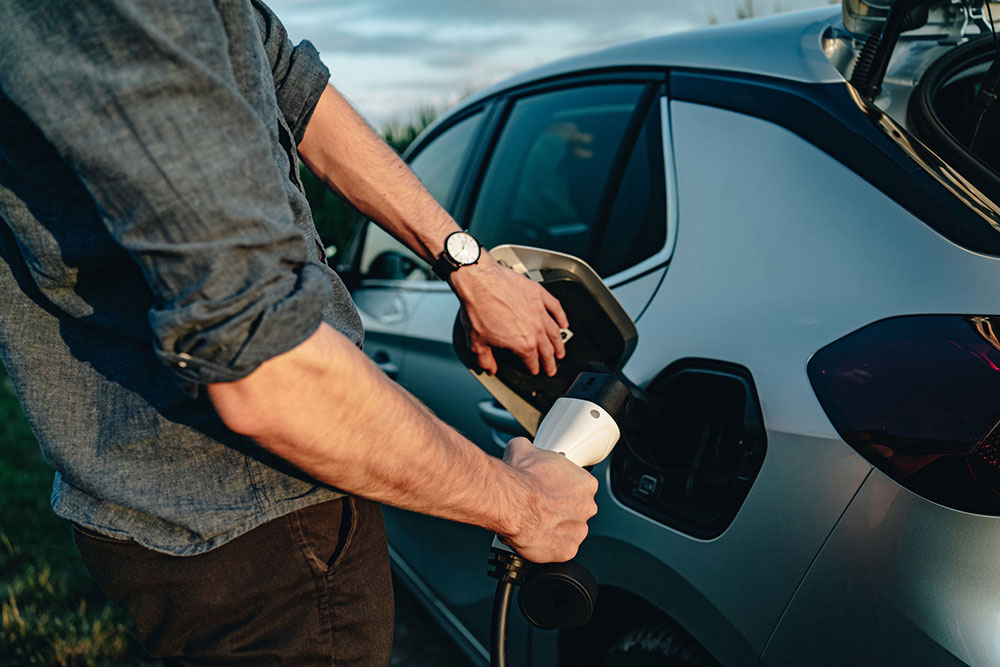EV drivers can save hundreds on popular road trips
New data shows road trips could be hundreds of dollars cheaper when using a battery electric vehicle (BEV).

Analysis by the Climate Council shows a road trip between Brisbane and Cairns in a BEV would cost you $293 less than filling up a car with petrol.
The data* shows drivers behind the wheel of a BEV could save $25 on a road trip from Brisbane to Noosa and $156 on a trip from Brisbane to Sydney compared with what would be spent on petrol for the average car.
Climate Council Councillor and economist Nicki Hutley said fuel consumption was a major consideration for Australians when choosing a car.
“Having cleaner cars that are cheaper to run will help relieve the cost-of-living pressure on households,” Ms Hutley said.
“We’ve crunched the numbers and electric cars deliver the biggest savings but even choosing a more fuel-efficient petrol car can generate big savings.
“The best part is you don’t have to own an electric car to drive one. Hiring an electric vehicle for your next trip is a great option.”
The Climate Council is a community funded, independent organisation which advocates for lower emissions.
Fuel cost comparison between battery electric vehicle and average passenger car
| Journey | Average passenger car | BEV (grid charging) | Savings |
| Brisbane to Noosa | $32 | $6 | $26 |
| Brisbane to Sydney | $196 | $40 | $156 |
| Brisbane to Cairns | $368 | $75 | $293 |
*Methodology
Two vehicles were used for this analysis: the average Australian passenger vehicle defined by ABS (11.1L/100km fuel consumption) and a battery electric vehicle (BEV) (BYD Atto 3 Extended, 60.5 kWh battery and 420km range). The vehicle models compared are all listed as 2WD wagons on the Green Vehicle Guide. Fuel costs refer to the week ended 10 December for 2023, these are broken down by state with NSW and ACT combined. Electricity costs are prices as of 11 December 2023 and broken down by state grid usage. Note: Solar EV charging can be significantly cheaper, while public standard AC and fast DC charging can be slightly more expensive (45-65c/kWh). Where a journey crosses into another state, the fuel and electricity costs of the origin state are used throughout. BEV charging costs equal EV battery size (kWh) multiplied by electricity rate ($ per kWh), divided by the vehicle range for $ per km and multiplied by trip km.
Related topics
Things to note
The information in this article has been prepared for general information purposes only and is not intended as legal advice or specific advice to any particular person. Any advice contained in the document is general advice, not intended as legal advice or professional advice and does not take into account any person’s particular circumstances. Before acting on anything based on this advice you should consider its appropriateness to you, having regard to your objectives and needs.
Insurance Products (excluding Travel Insurance) are issued by RACQ Insurance Limited ABN 50 009 704 152 (RACQI) and arranged by its agent, RACQ Distribution Services Pty Ltd (RDS) ABN 35 116 361 650, AFSL 567130 and RDS' authorised representatives (including RACQ Operations Pty Ltd ABN 80 009 663 414, AR No. 234978 (RACQO). Conditions, limits and exclusions apply. RDS and RACQO are in the RACQ group of companies. One of the companies in the RACQ group of companies has a minority shareholding in RACQI.
RDS and RACQO have not taken your personal objectives, circumstances or needs into account when preparing advice regarding insurance products and you will need to consider whether the advice is appropriate for you. Read the Product Disclosure Statement (PDS) and any applicable Supplementary PDS before making a purchase decision on this product. You can also access our Target Market Determinations on this website. RDS receives a commission from RACQI for the policies it arranges. RACQO receives fees paid for services it provides to RDS. Further details about remuneration are available on request prior to purchasing.
Banking and loan products issued by Members Banking Group Limited ABN 83 087 651 054 AFSL/Australian credit licence 241195 trading as RACQ Bank. Terms, conditions, fees, charges and lending policies apply. This is general advice only and may not be right for you. This information does not take your personal objectives, circumstances or needs into account. Read the disclosure documents for your selected product or service, including the Financial Services Guide and the Terms and Conditions, and consider if appropriate for you before deciding.
Except for RACQ Bank, any RACQ entity referred to on this page is not an authorised deposit-taking institution for the purposes of the Banking Act 1959 (Cth). That entity’s obligations do not represent deposits or other liabilities of RACQ Bank. RACQ Bank does not guarantee or otherwise provide assurance in respect of the obligations of that entity, unless noted otherwise.
RACQ Bank subscribes to the Customer Owned Banking Code of Practice which establishes higher standards than the law requires. The Code reflects modern consumer expectations and developments in approaches to issues such as consumer vulnerability, guarantors, and supporting customers through financial hardship. Please read our Customer Owned Banking Code of Practice page for more information.
RACQ Operations Pty Ltd (ABN 80 009 663 414 AR 000234978) and Members Travel Group Pty Ltd (ABN 45 144 538 803 AR 000432492) are acting as an Authorised Representative of the issuer of the insurance, Tokio Marine & Nichido Fire Insurance Co., Ltd. (ABN 80 000 438 291 AFSL 246 548). Any advice set out above is general in nature only, and does not take into account your objectives, financial situation or needs. Before purchasing any travel products, please consider the RACQ Travel Insurance Product Disclosure Statement (PDS) and the Target Market Determinations (TMDs) that apply to these products. Whilst the PDS outlines the Terms and Conditions of these products, the TMDs outline the intended class of customers that comprise the target market for these travel products. This will allow you to consider which products best suit your objectives, financial situation and needs and consider the products appropriateness to your personal circumstances. TMDs also outline matters involving the distribution and the review of these products. The PDS, Supplementary PDS and TMDs for each travel product can be found here.

